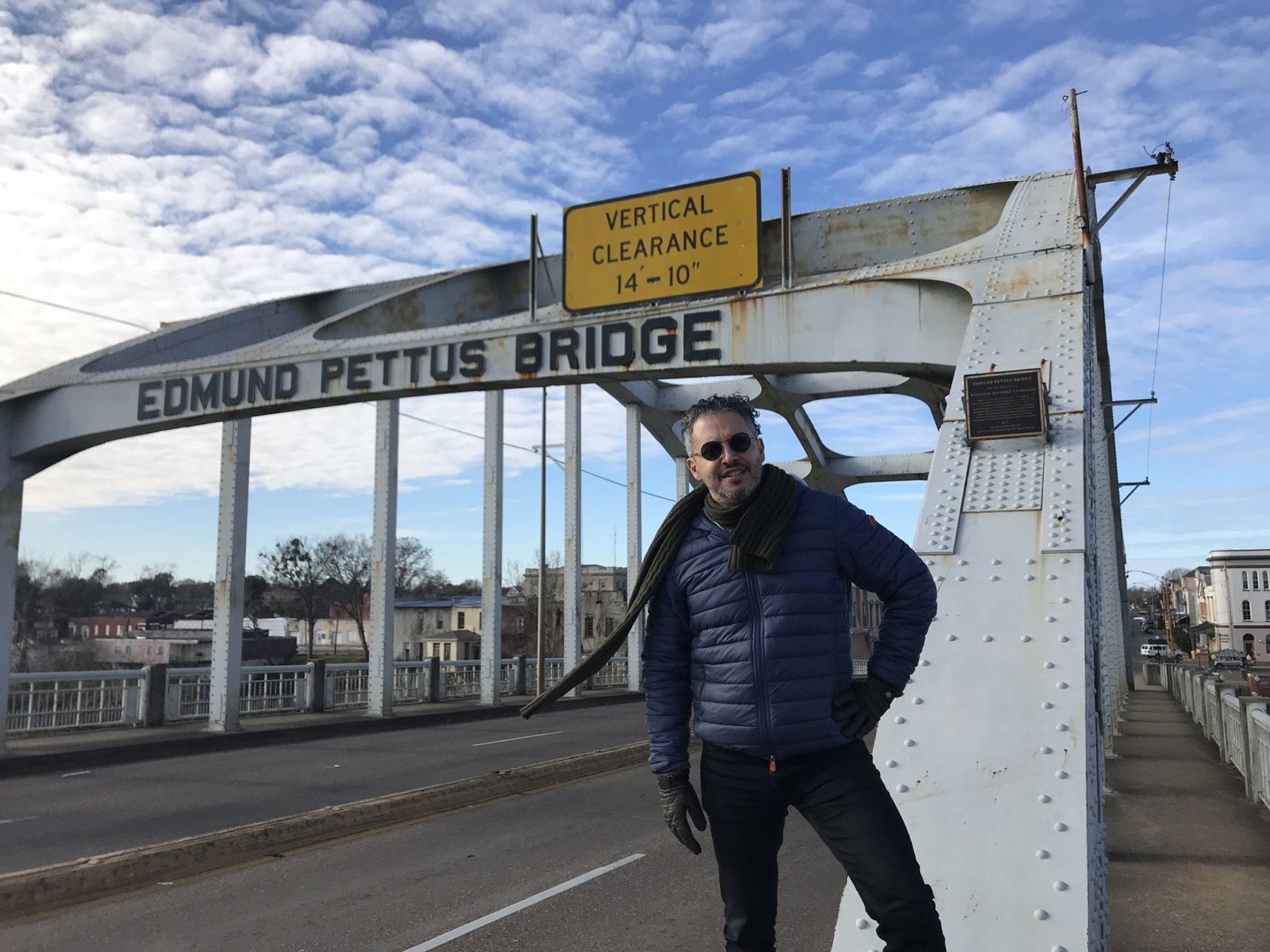At the end of Shawshank Redemption, Morgan Freeman is on a bus headed for the border. Luckily there isn’t a wall. He’s a crook out on parole and he’s about to break parole so he can go see his friend, Tim Robbins.
I know, I know, Morgan Freeman is playing Red and Tim Robbins is playing Andy. But to me they are who they are. So anyway, Morgan Freeman found a letter under a rock next to a wall in a great, big field. The letter was left there for him by Tim Robbins, after he broke out of Shawshank by crawling through a sewer pipe.
Incidentally, in case you’re wondering, here’s the controlling idea of Shawshank: you’re never gonna find true happiness, you’re never going to be truly free until you tunnel through shit put there by people who are supposed to know better but are too caught up in themselves to stop acting like MAGA HAT wearing assholes.
As Morgan Freeman is sitting in the bus, thinking about seeing his friend for the first time, on the other side of the prison walls, he says to himself this must be how a free man feels, at the start of a journey, where the destination is uncertain. It goes something like that. I could google. But why? I don’t read books or see movies so I can google the exact thing. I hang on to the memory so I can wax poetic about it in a shitty blog.
After I finished my interview with Kuntrell Jackson, I tracked down Vinny Vegas. He rented a white Chevrolet Camaro. A convertible. We had plans to make the pilgrimage from Montgomery to Selma so we could walk the Edmund Pettus Bridge.
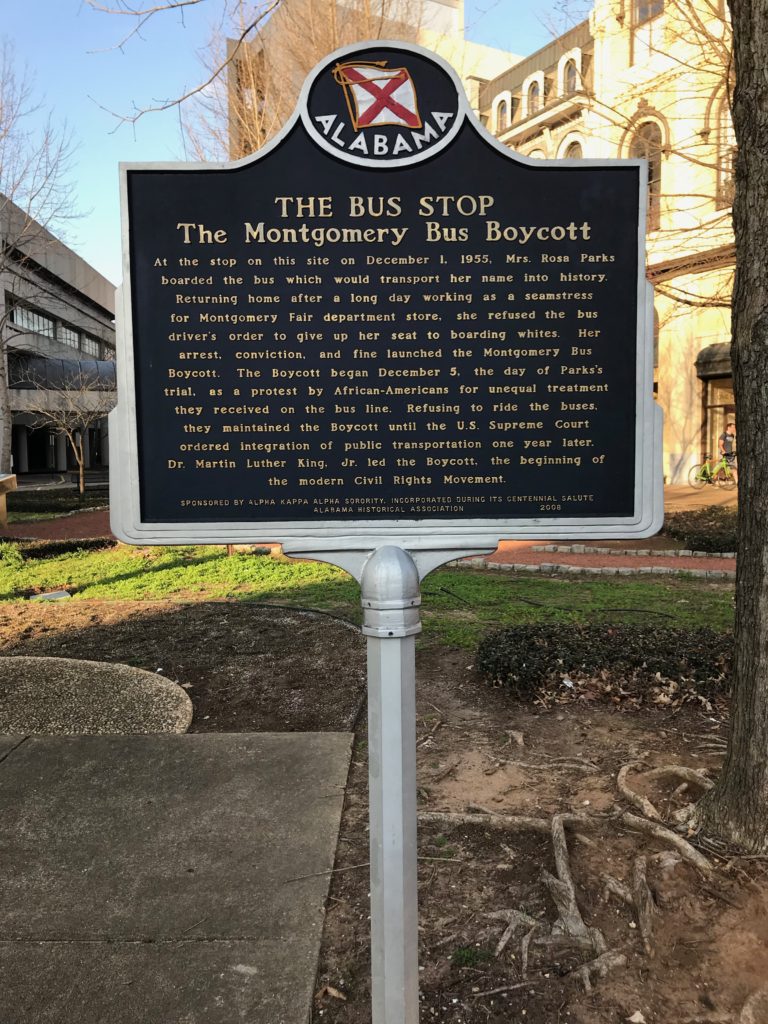
I had so many thoughts swirling through my brain. I had recorded the interview, but I hadn’t written anything and until I sat my ass down, it was nothing more than an interesting conversation with Kuntrell. I owed him more than that. I suppose I could work with Garage Band and turn our conversation into a podcast. But I’m not into podcasts. They feel like an open mic in your basement, best left to famous people and bitter comedians looking for answers as to why they weren’t the one to magically sell out Madison Square Garden.
Boo-hoo. I don’t like boo-hoo. My Grandma Heather was a pity party champion. To me, it’s a turn-off.
I began thinking about Elie Wiesel. After he survived the concentration camps, he wrote “Night.” It was important to bear witness and the book cannot be denied as a cultural powerhouse. But here’s the sad news: Elie Wiesel spent the rest of his life re-living the nightmare so we could award him with medals and feel better about ourselves.
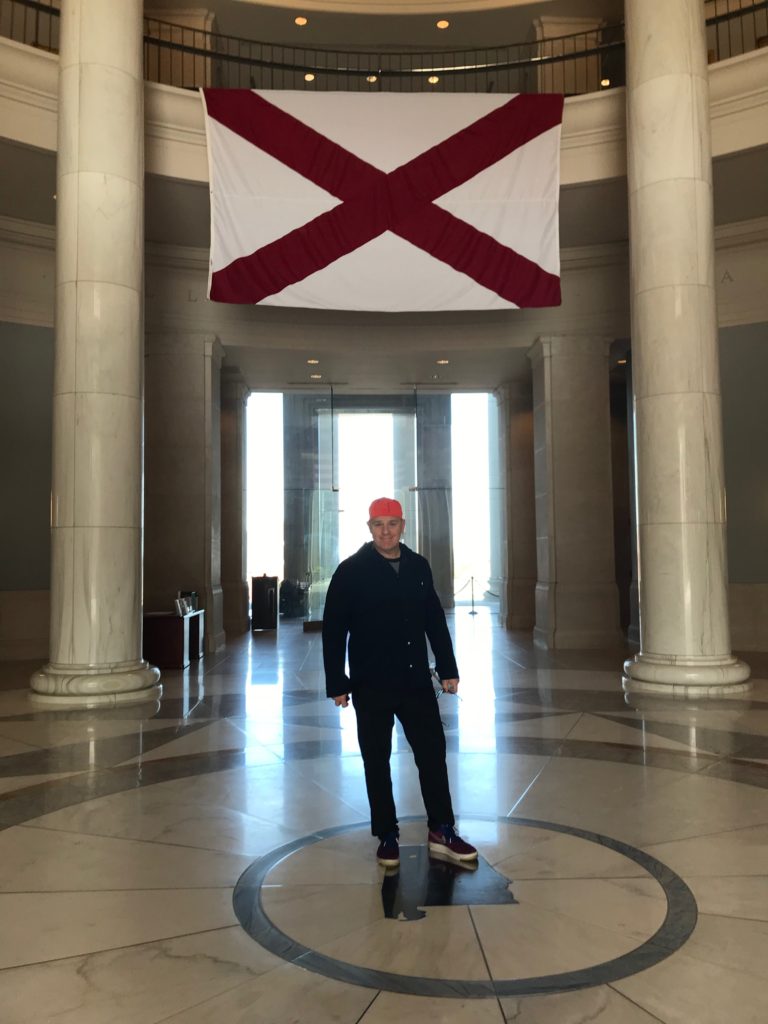
When I asked Kuntrell Jackson what he wanted to do now that he was free, I expected him to say he was going to dedicate the rest of his life to helping others who are still incarcerated and are deserving of a second chance.
Instead this is what he said: “I want to act.”
As soon as he said it, I knew Kuntrell was free. Maybe he still had 2 years left to go on his parole, but already in his mind, he was thinking like a young guy who was taking an inventory of his assets.
He was young, check. He was charismatic, check. He was undeniably attractive, check. In fact a couple women stopped us as we were leaving the coffee shop to see what he was up to, they were pretty much throwing themselves at Kuntrell. He has the natural presence of a movie star. His face would look great on the billboards in West Hollywood running along Sunset Boulevard.
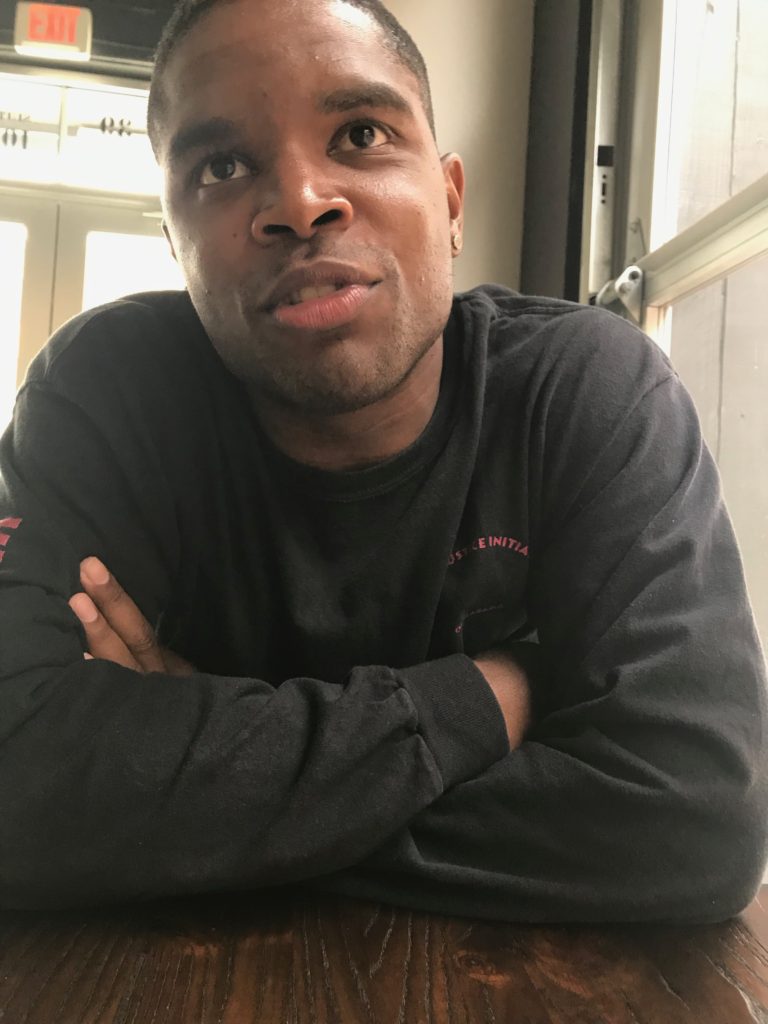
And he knew it.
At some point when they’re walking the prison yard at Shawshank, Morgan Freeman is in a particularly foul mood, which is unusual for him. He stares at the walls and says, “They give you life and that’s exactly what they take.” This is the mindset of a man who’s still incarcerated. Nowhere in the conversation I had with Kuntrell Jackson did I feel like his mindset was going to be a liability on the trajectory of his life.
It was too cold to put the top down on the drive from Montgomery to Selma. It’s 54 miles, which is interesting to note since it’s the distance MLK walked to drive home his point. There were horses with cruel white men taking joy in smashing the skulls of black men and women whose only crime was a fierce determination to be treated as equals. There were angry dogs on the short leashes of cruel white men who were pointed at black men and women who were being terrorized for their refusal to relinquish their potential under laws that were the opposite of just. When I finally got to the Edmund Pettus Bridge, I was struck by how small it is, how unassuming.
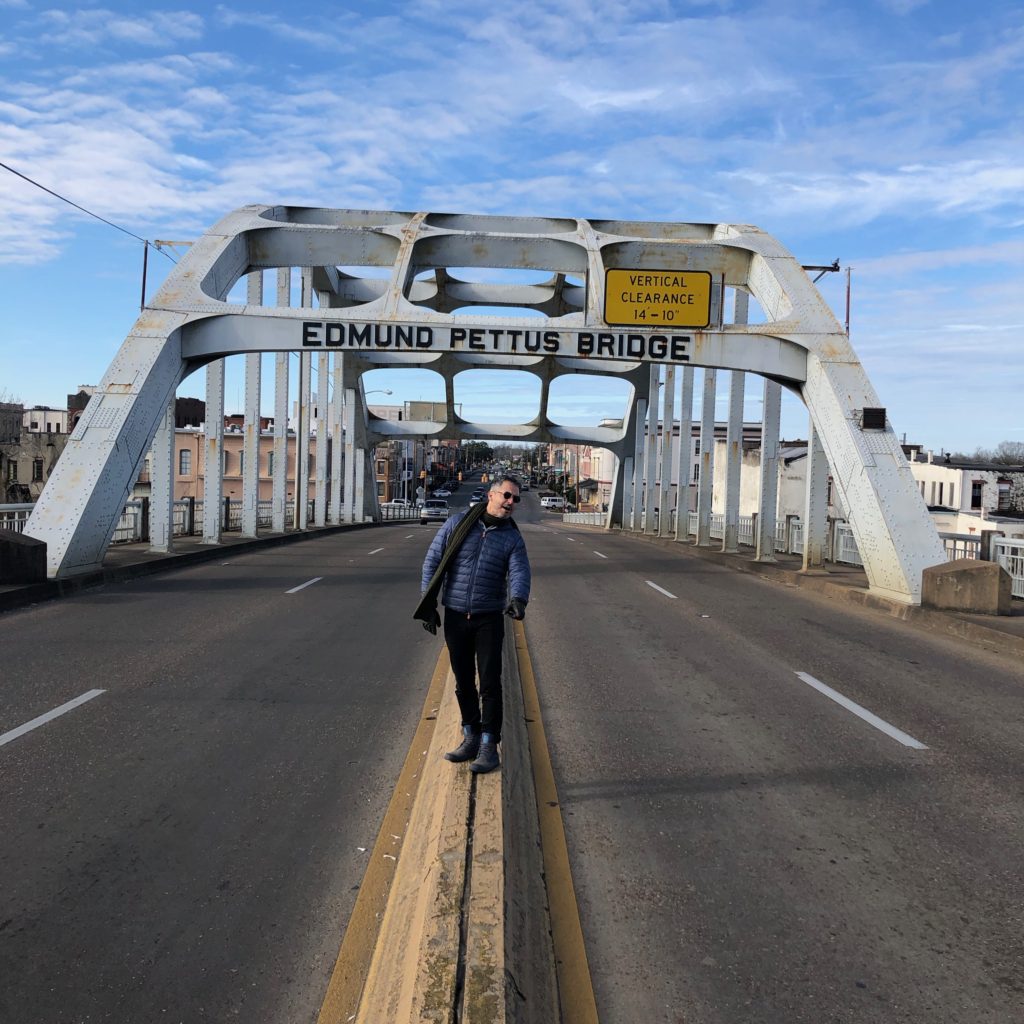
Once again I was having a moment but the commuters were trying to get across the bridge for work or lunch or to conduct business in downtown Selma. I walked into the middle of the street for a picture and almost got hit by an oncoming car. Vinny Vegas was smarter than that, he stayed on the sidewalk.
We got to the other side and were met by Columbus Mitchell. He was selling a commemorative magazine. Vinny Vegas has a soft spot for hustlers, so he bought one at twice the asking price. Columbus Mitchell told us about his uncle who marched across the bridge and testified to the violence he saw that day. Then he told us about the namesake of the bridge, Edmund Pettus.
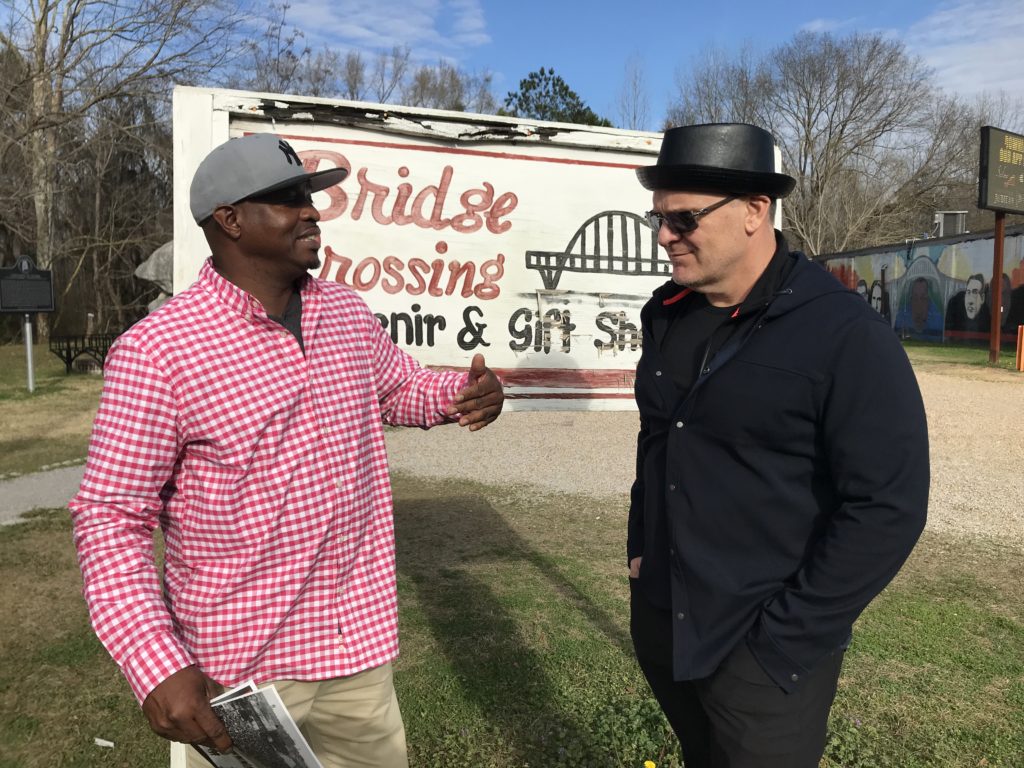
According to Columbus Mitchell, the infamous Edmund Pettus was a high ranking officer in the Confederacy. After the south lost “The War Of Northern Aggression,” he was so dedicated to keeping the races separate that Edmund Pettus became The Ultimate Grand Wizard of The KKK. I suppose I could google all of this to get it straight, but I’d rather be charmed by the memory of learning this news from Columbus Mitchell.
We got into a conversation about re-naming the bridge. There’s a movement to re-name it the John Lewis Bridge. I’m a fan of John Lewis, it goes without question. What he confronted that day on bridge, in the name of equality is historical, awe inspiring and terrifying. But there’s a part of me which takes great joy in knowing wherever the spirit of Edmund Pettus happens to be, when he looks down on the bridge bearing his name, it is the gold standard for equality.
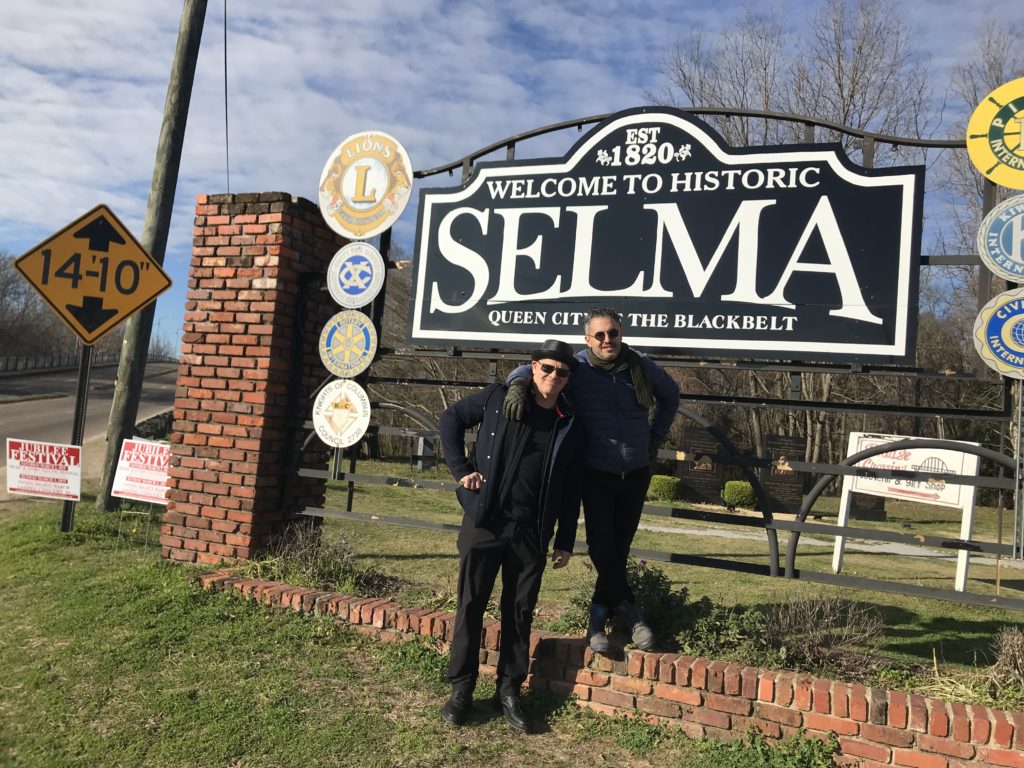
Turns out he was The Grand Wizard, but his spells were back loaded with irony.
On the drive from Selma to Montgomery, Vinny Vegas stopped at Mama’s Kitchen & Grill, recommended to us by Columbus Mitchell. We went inside. The food was fried and served buffet style. It was picked over and the people who worked there barely noticed us, which we took as a blessing. Even with the top down, I wouldn’t want anyone sitting next to me after eating the fried food of a picked over buffet.
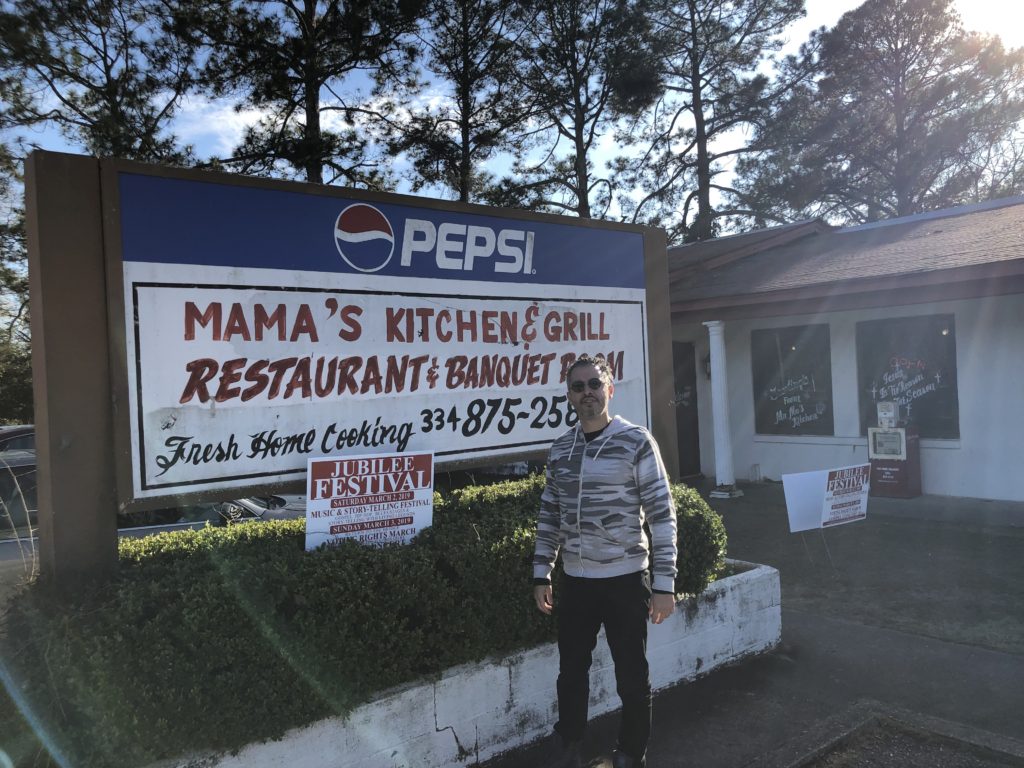
Mercifully, we skipped lunch.
We drove back on the same road but the view was different. Funny how you can travel the same road in two different directions and have a completely different perspective. I stared out the window, taking in the beauty of Alabama, thinking about Kuntrell and his desire to be an actor.
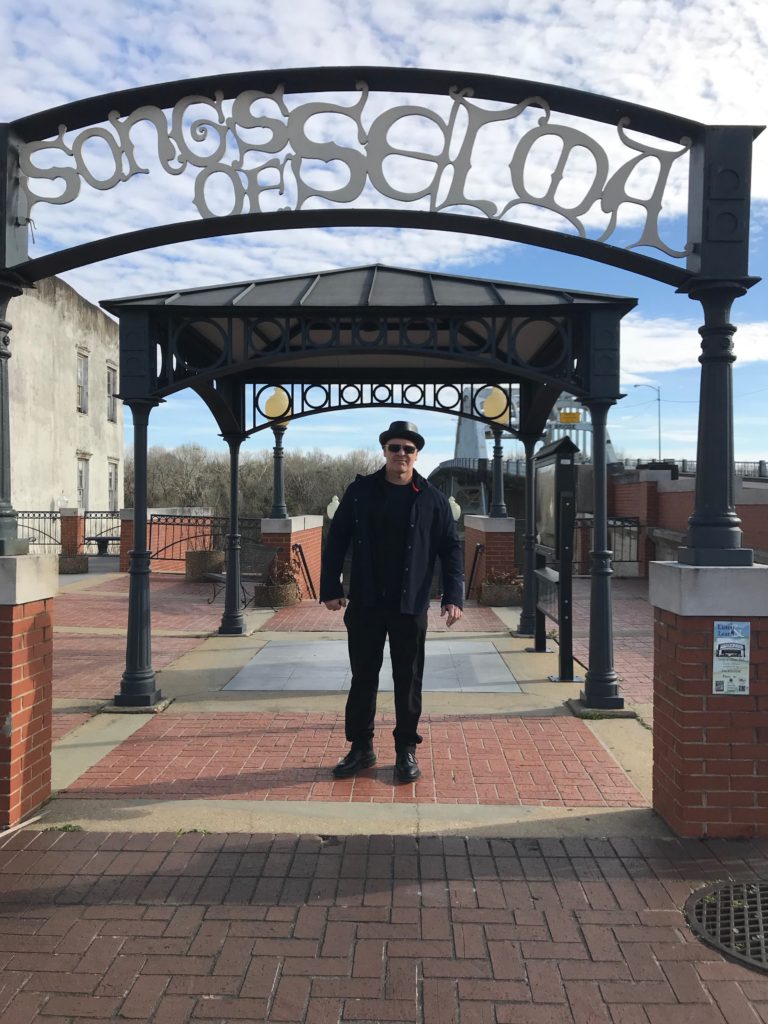
I thought about Ava DuVernay. I thought about Spike Lee. But then I thought to myself, why does it have to be a black director, or even a white director with a conscience? So I thought about Clint Eastwood. I wished I had their numbers and was on the short-list of people whose call they’d take. The only thing Kuntrell Jackson needs is an opportunity, it’s the only thing any of us needs. We need an opportunity and someone to believe in us, to give us the chance to succeed and have the movie bomb, to fail and have the movie become a box office phenomenon. It’s arbitrary, success is arbitrary. As for the spotlight, at best the spotlight is a tool for putting asses in seats, at worst all of the attention that comes along with the spotlight is nothing more than a distraction from the emptiness of your life.
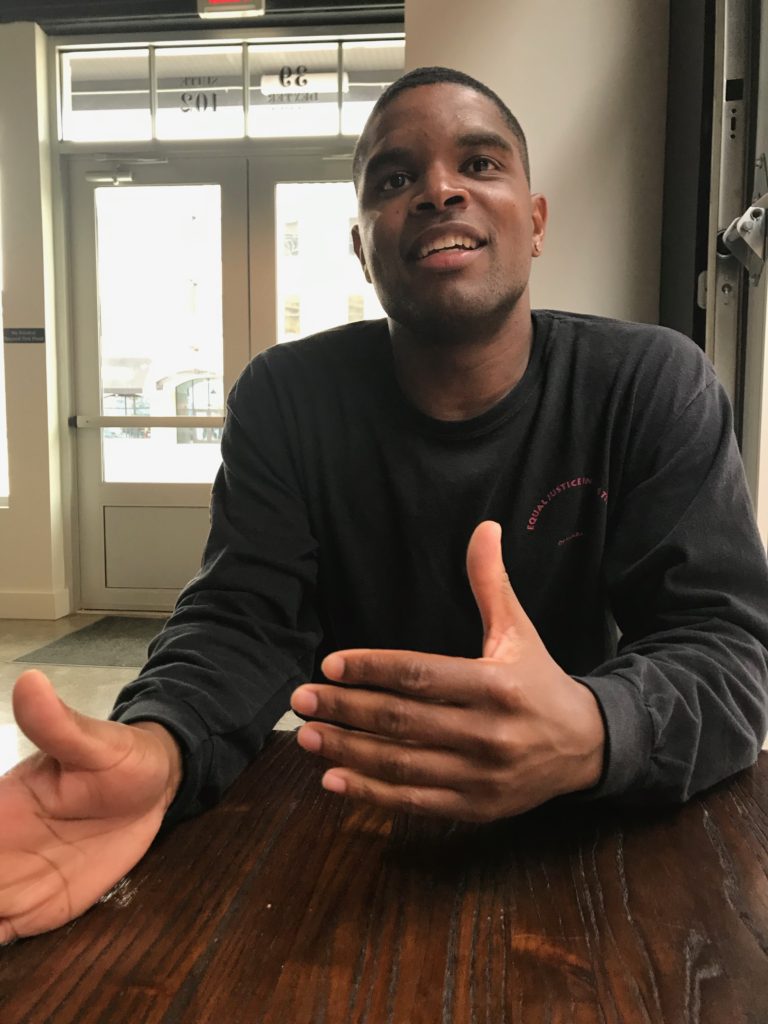
I’m sorry to say this, Kuntrell: I don’t know any of these people and I cannot help you in your quest to become an actor but I do hope you’re soon liberated from The Legacy Museum, where the video of you playing an incarcerated version of yourself is already in the can, edited and out in very limited release.
Maybe Stephen King can write a prequel to Shawshank, where you can play Red in the early years. I don’t know much about making a successful movie, but I do have one small suggestion: secure Morgan Freeman for voice-over work, his voice is harder to resist than a warm cookie-bottom sundae.
As you can tell on the car ride back to Montgomery, this white boy was hungry!
